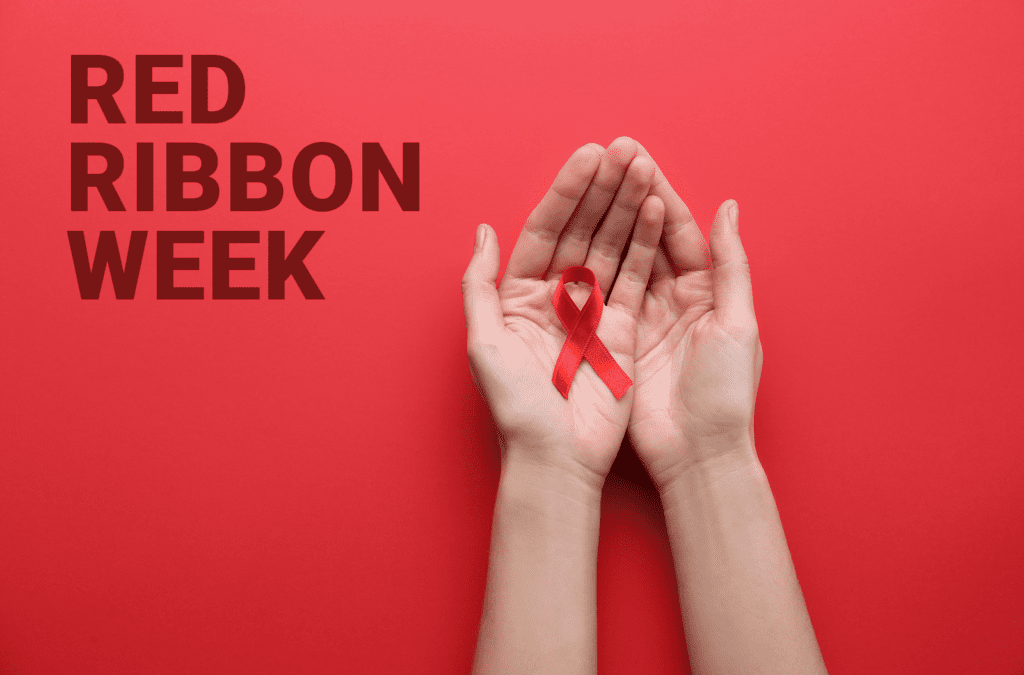Red Ribbon Week is a national drug awareness campaign celebrated each year during October. The week is a reminder of the importance of sharing factual information about drugs and alcohol with young people. As a parent, you play a vital role in shaping your child’s decisions and are their best source of information. While drinking and smoking marijuana may be seen as normal teen behavior, for some, it can have dire consequences.
Talking to teens about drugs and alcohol can be difficult, yet it’s an important conversation to have. Here are some suggested responses to your teen’s statements and questions to help make the conversation easier.
Your teen says: Drinking under 21 is not a big deal.
Your response: The age limit for alcohol is based on research that shows that young people react differently to alcohol. Teens get drunk twice as quickly as adults, but they have more trouble knowing when to stop. Your body takes much longer to process alcohol and you may put yourself in risky situations since being intoxicated interferes with good judgment. I don’t want this for you.
Your teen says: I only drink or smoke marijuana once in a while. What’s the big deal?
Your response: Thank you for your honesty. I appreciate that you can be open with me about this. Right now, your brain is completing some important development. Drinking during this time can actually interfere with this process and make you more prone to addiction. While you are young, it’s much easier to learn new things and addiction is a learned behavior. Alcohol can cause permanent damage to your brain, particularly as it relates to memory, motor skills, and coordination. I am not saying this to scare you. I want you to have the facts about alcohol’s effects.
Your teen says: I know a lot of people who drink or smoke marijuana, and they seem fine.
Your response: I am hoping you will make your own choice, and I am here to help you with that. Research shows that taking your first drink in your early teens puts you at greater risk of developing a dependence on alcohol later in life. In fact, studies show that teens who start drinking before age 15 are 5 times more likely to develop a serious problem with alcohol than those who begin drinking after the age of 21. This is not a risk I want you to take.
Your teen says: Did you drink when you were a teen?
Your response: I made some unsafe choices that I am hoping you won’t repeat. My parents were not very open and honest about the risks involved, so I am hoping we can have a more open conversation. There’s a lot more information available today that shows that drinking is more harmful during the teen years as your brain is still developing. I want you to make choices to protect your growing body.
Your teen says: You drink, so why shouldn’t I?
Your response: I am of legal drinking age, and I choose to be responsible when drinking alcohol. If I do drink, I make arrangements for a ride home, so that I do not drink and drive. Even when you do become 21 years old, I want you to understand the risks associated with drinking.
Your teen says: Marijuana is legal now in California, so is it OK for me to try it?
Your response: It’s still not legal for anyone under 21. This age limit is meant to protect adolescents from its harmful effects. Your brain is completing some very important development and using marijuana during this time can interfere with this development. Today’s marijuana is more than 300% stronger than it was when I was growing up. This is a real concern to me.
Your teen says: Marijuana is a natural plant—so it’s safe.
Your response: Just because it is “natural,” does not mean it’s safe. Because it is still federally illegal, there are few regulations ensuring that it meets safety guidelines. The strength and potency of marijuana varies, and it often contains large amounts of pesticides, fungus, and even lead. Now that it has become “big business” funded by large tobacco companies, there is not much that’s “natural” about it.
We hope you find these scenarios helpful in engaging your teen in an honest, open conversation about the harmful effects of youth alcohol and drug use. We want you to have the facts so you can respond appropriately and truthfully. You can, of course, make your responses more authentic and heartfelt by using your own words. Afterall, what you say—and how you say it—truly does make a difference in your teen’s life.
